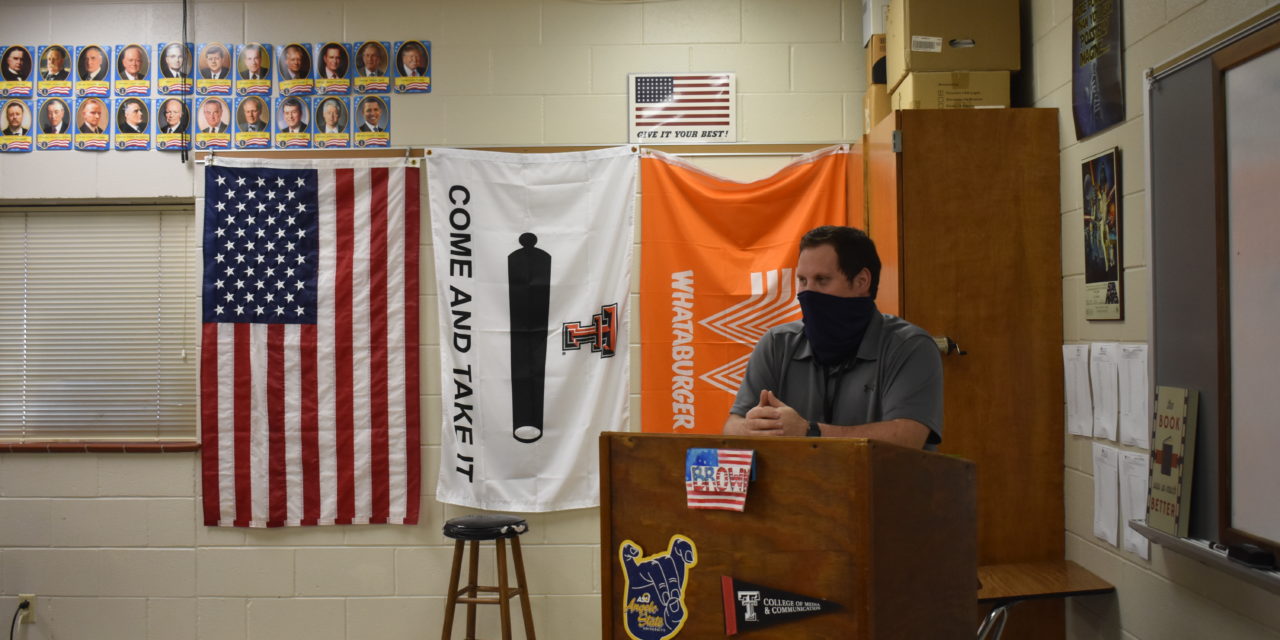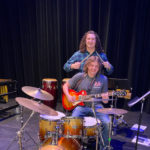By: Vicky Gao
Late nights filled with essays, desks covered with papers asking about the industrial revolution, natural selection, the women’s suffrage movement in America, electricity, what functions fit into the equation. This outlines a reality sophomores, juniors and seniors are facing in the weeks leading up to AP testing as the scramble for review comes to a head.
AP testing week for the 2020-2021 year is coming up in early May. Students and teachers alike are putting in the work for the last stretch of prep before the exams. AP tests students are taking include World History, Government and Economics, U.S. History, Music Theory, Chemistry, Biology, Environmental Science, English 3 and English 4, Calculus, and Statistics.
“It has been different because last year we only did online AP testing, so it’s going to be weird doing it in person,” junior Brent Bardin said. “I do feel more prepared this year than last year.”
As students and teachers prepare for this year’s test, they reflect on the unprecedented formatting of testing amidst a global pandemic they underwent last year.
“I don’t take for granted the prep time that we have whereas last year it was teaching on a computer hoping everyone had access to a computer,” AP English 3 teacher Angela Wier said. “It also demonstrated the perseverance of people who did follow through last year.”
The pandemic did not just affect the online AP testing last year, but students’ learning habits and research preparation, according to Weir. AP Chemistry and Biology teacher Paula Everett echoes these sentiments and explains how the pandemic has additionally affected students this year.
“The pandemic has affected the AP classes hugely,” Everett said. “AP classes are made to be a hands-on, inquiry-based class. The lack of interaction decreases engagement.”
Despite these challenges, many students expressed their confidence in the preparation their teachers have given them.
“I’ve gotten a lot more preparation in general,” junior Gabe McCracken said. “The teachers were prepared to push us to that level where we’re able to take a test like that comfortably.”
One thing that hasn’t changed this year is the incentive for selection of AP courses, from getting the 10 points added to a GPA to looking ahead to career plans and college.
“I take AP courses because I think they help prepare students for college,” junior Sophie Penya said. “I like to be in class with kids who are willing to learn.”
Not only are AP courses beneficial for college prep, they offer valuable life lessons and values.
“I originally joined AP music theory because I thought it’d help me become a better singer,” sophomore Jakob Enriquez said. “Now that I’ve joined music theory, it has taught me about discipline and if you don’t show dedication then you’re not going to do very well in many of your classes.”
A reverberating message was students’ appreciation for their AP teachers’ dedication to preparing them adequately for the exams, from English 4 to U.S. History.
Mr. McGee is a really good English teacher; he makes it easy to understand material like Shakespeare,” senior Cole Patterson said. “He is really good at helping us understand the more complex themes and just how to read old English.”
The review crunch has begun, with some classes finishing with covering new material a week or two ago and jumping in to the review process, writing essays and administering mock exams. Mock exams were particularly appreciated and regarded as beneficial among students.
Teachers do a lot of work with mock exams, so you get a lot of practice so that you aren’t going in fully blind,” Bardin said. “You’ll know what the tests are going to look like and how they’re formatted.”
Seniors, seasoned veterans of AP testing, assure that it does get easier as you go along the AP path.
“Yes, I think I’ve become more accustomed to AP testing,” Patterson said. “Just having taken so many of them you kind of get used to it. The more you take it, the easier it gets.”










